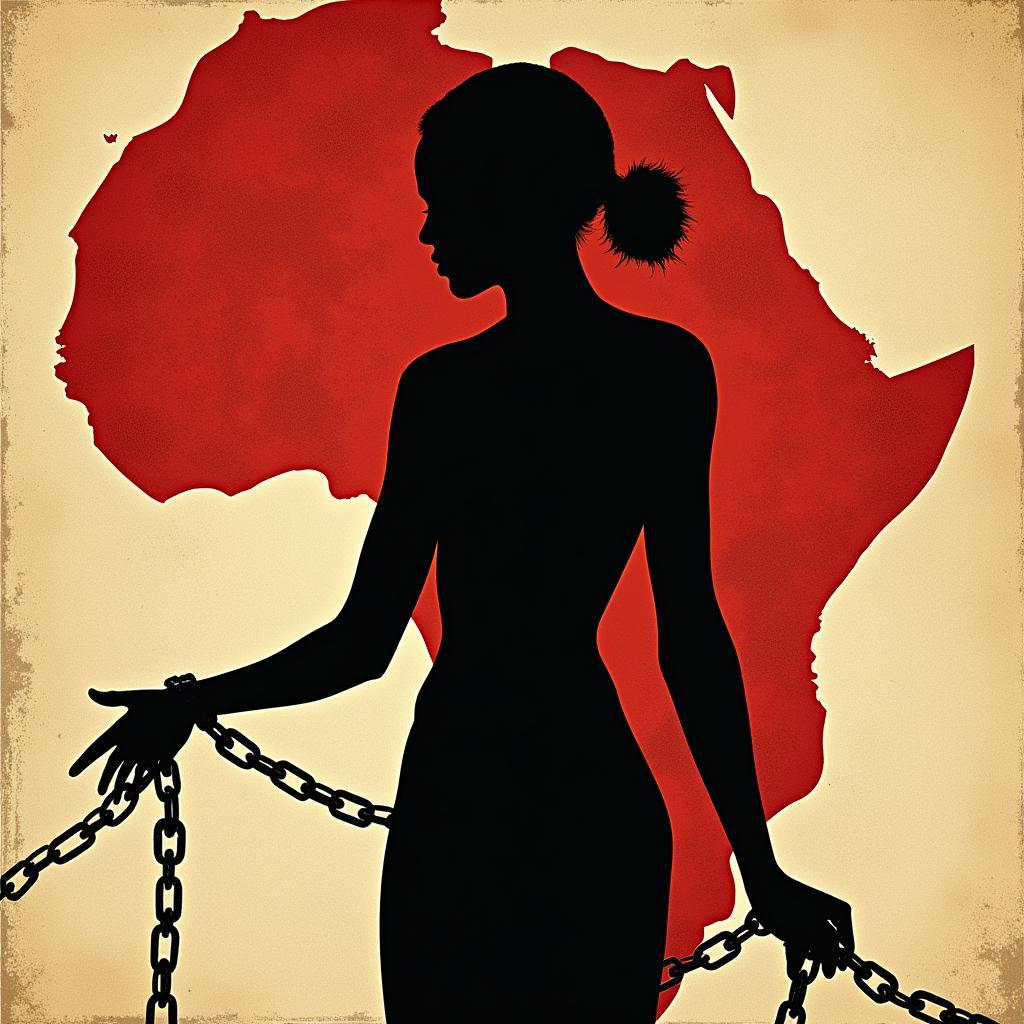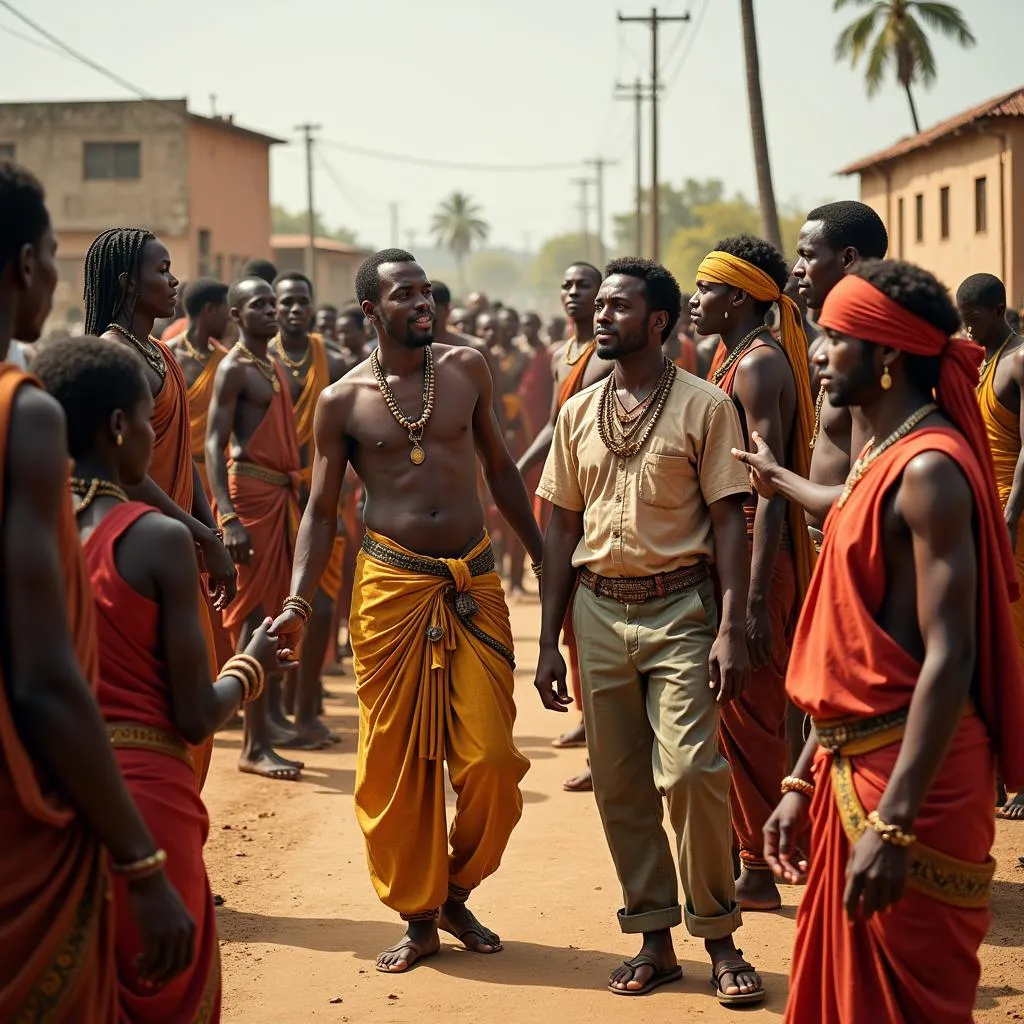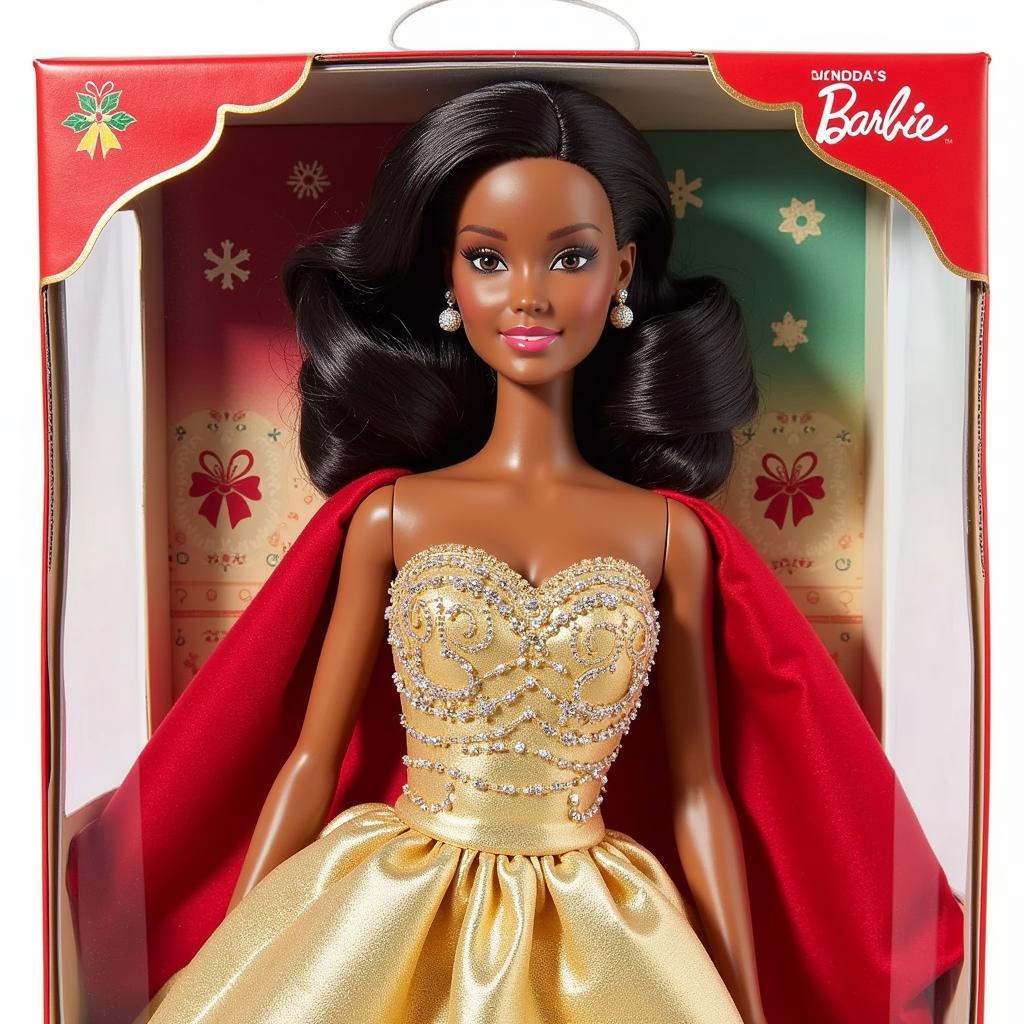Navigating the Sacred: A Journey Through African Burial Rituals
African Burial Rituals are a powerful testament to the continent’s rich cultural tapestry. Far from mere ceremonies, they offer a profound reflection of the beliefs, values, and spiritual connections that bind diverse communities across Africa. This exploration delves into the heart of these rituals, unveiling the beauty, symbolism, and deep-rooted traditions that surround death and the afterlife.
The Tapestry of Beliefs: Ancestral Spirits and the Afterlife
Across Africa, death is rarely viewed as an end, but rather a transition into the realm of ancestors. This belief in ancestral spirits, deeply intertwined with daily life, plays a pivotal role in shaping burial customs. It is believed that these spirits, revered and consulted for guidance, continue to influence the lives of their descendants.
Many communities believe in a spiritual realm where the deceased journey after death. This journey often involves rituals and traditions designed to assist the deceased in reaching their final destination and joining the ancestors.
Honoring the Departed: A Celebration of Life and Legacy
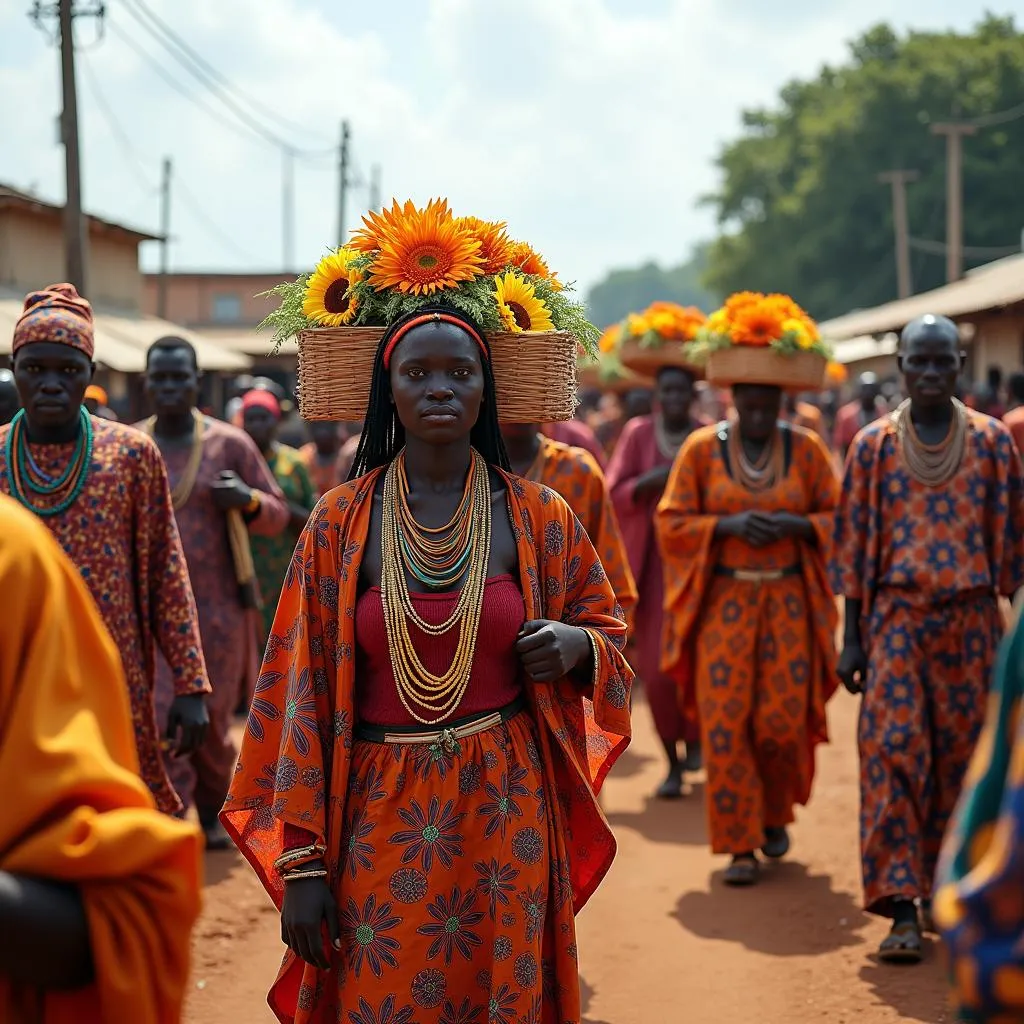 African Funeral Procession
African Funeral Procession
African burial rituals are often vibrant celebrations of life, acknowledging the contributions and legacy of the deceased. Music, dance, and storytelling feature prominently, creating a powerful sense of community and shared grief. These celebrations serve as a reminder that death, while sorrowful, is an integral part of the circle of life.
In many cultures, elaborate ceremonies and feasts are held to honor the deceased. These gatherings provide an opportunity for the community to come together, share stories, and find solace in their shared loss.
Ritual Diversity: A Continent of Customs and Traditions
It’s crucial to remember that Africa is not a monolith. Burial rituals vary significantly across regions, tribes, and religions, reflecting the continent’s incredible cultural diversity.
For instance, in some cultures, elaborate burial mounds and mausoleums serve as physical representations of the deceased’s status and legacy. In contrast, others practice water burials or cremation, their rituals dictated by geographical factors or specific spiritual beliefs.
Symbolic Offerings: Guiding the Journey to the Afterlife
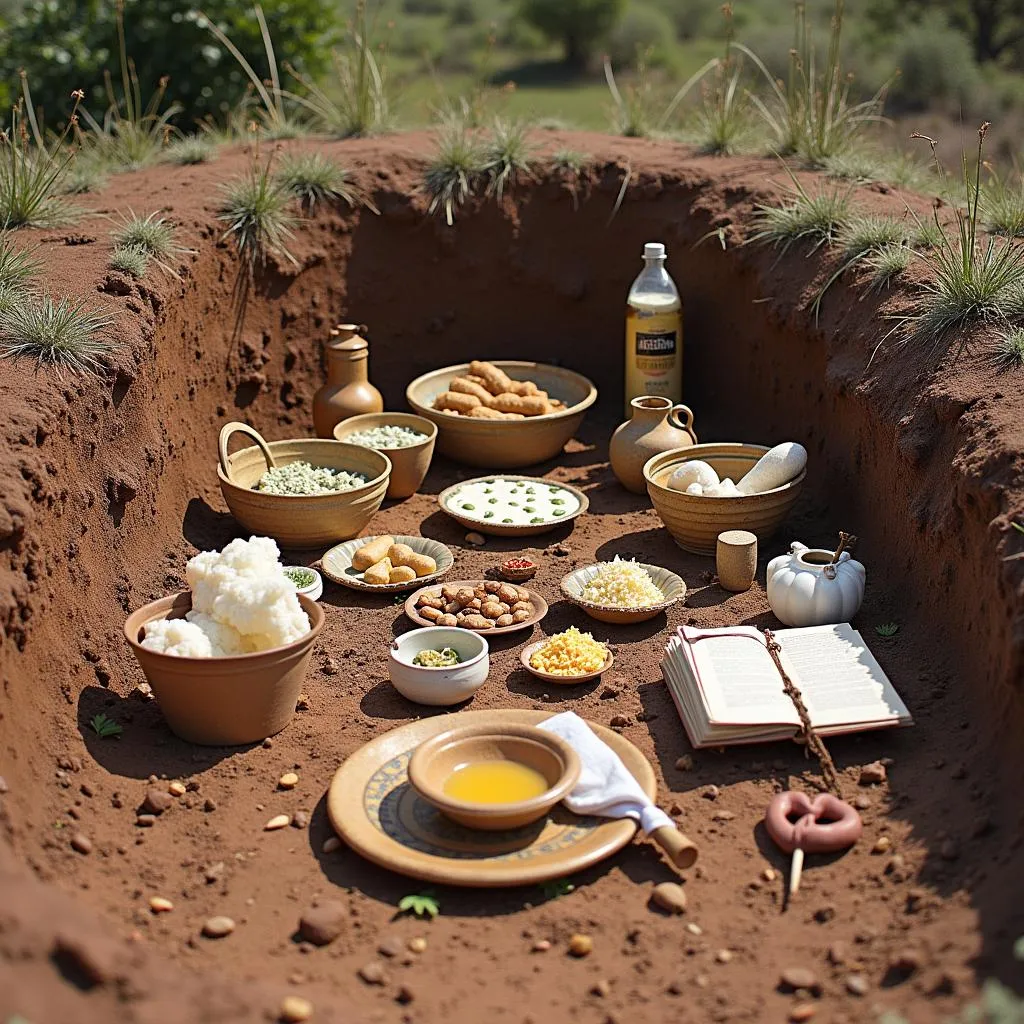 African Burial Offerings
African Burial Offerings
Across many cultures, offerings play a significant role in burial rituals. These offerings, carefully chosen for their symbolic value, are meant to provide comfort and sustenance to the deceased on their journey to the afterlife.
Food, drinks, personal belongings, and even livestock might be offered, reflecting the deceased’s preferences and needs in the next life. The act of offering is a powerful demonstration of respect, love, and the enduring bond between the living and the departed.
Navigating Taboos: Respecting Cultural Sensitivities
When encountering African burial rituals, it’s essential to approach with respect and sensitivity. What might seem unusual or even taboo in one culture could hold deep spiritual significance in another. For example, certain colors, attire, or behaviors might be considered disrespectful or inappropriate during these ceremonies.
Preserving Heritage: Safeguarding Ancient Traditions in a Modern World
As the world modernizes, many African communities face the challenge of preserving their ancient burial traditions. Globalization, urbanization, and religious conversion impact how these rituals are observed. However, there’s a growing movement to document, protect, and celebrate these rich cultural practices, ensuring their survival for generations to come.
Conclusion: Embracing the Beauty of African Burial Rituals
African burial rituals offer a captivating glimpse into the continent’s diverse cultures and spiritual beliefs. They are poignant reminders of the universal human experience of loss, grief, and the enduring power of community. By understanding and appreciating these traditions, we gain a deeper respect for the rich tapestry of human experience and the diverse ways we navigate the journey of life and death.
FAQ
1. What is the significance of music and dance in African burial rituals?
Music and dance serve as a celebration of life, a way to express grief, and a means to communicate with the spiritual world. They create a powerful sense of community and help to guide the spirit of the deceased.
2. Are there specific mourning periods observed in African cultures?
Yes, many African cultures observe specific mourning periods, which can range from a few days to several months. During this time, family members may wear specific clothing, abstain from certain activities, or observe specific rituals.
3. How are modern influences impacting traditional burial practices?
Globalization and urbanization are leading to changes in how some rituals are performed. However, many communities are actively working to preserve and adapt their traditions for future generations.
4. What are some respectful ways to learn more about African burial rituals?
Engaging with local communities, attending cultural events, and researching reputable sources are respectful ways to learn more about these traditions. It’s crucial to approach with sensitivity and avoid cultural appropriation.
5. Why is it important to preserve and understand these rituals?
Burial rituals provide invaluable insights into the history, beliefs, and values of different cultures. Preserving these traditions ensures that cultural heritage is passed down to future generations.
Do you have other questions?
Explore our website for more articles on:
- African goddess of death
- African heron vessel
- [The role of ancestors in African spirituality](link to relevant article on your website, if available)
Need support or more information? Contact us:
Phone: +255768904061
Email: kaka.mag@gmail.com
Address: Mbarali DC Mawindi, Kangaga, Tanzania.
Our dedicated team is available 24/7 to assist you.
